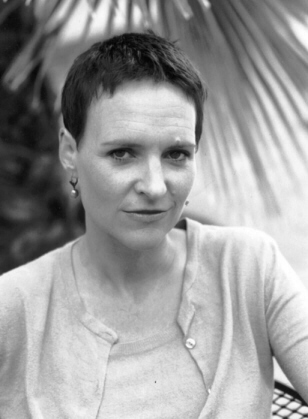Antonya Nelson: Female Trouble
By
Jesse Kornbluth
Published: Jun 30, 2010
Category:
Fiction
Both her parents were English professors, so it wasn’t entirely surprising that Antonya Nelson grew up writing stories. Or that her mother would give her an entry form to a Mademoiselle magazine contest. Or that she would just happen to have a story ready. Or that she’d win.
“That didn’t really open doors like I thought it would,” Nelson has recalled, “but I kept entering all of the contests I could, and my short story collection was a finalist in several before it won the Flannery.”
With that, she was launched. Her fiction has made the New York Times “notable books” list in 1992, 1996, 1998, 2000, and 2002
. She’s been one of The New Yorker’s “twenty young fiction writers for the new millennium.”
She’s won grants from the National Endowment for the Arts and the Guggenheim Foundation. To round it out: She’s been married to Robert Boswell, a writer she met in a creative writing workshop, for 25 years and is the mother of two children.
If you’ve never heard of her, don’t feel badly — neither did I. But a tipster steered me to "Female Trouble" (to buy the book from Amazon.com, click here; for the Kindle edition, click here), a collection of stories first published in 2002. It’s so addictive I want to read much more of her.
Next up: a random walk through Antonya Nelson’s other books. I think I’ll start with “The Expendables” (to buy the paperback from Amazon, click here), a collection of stories that won the Flannery O’Connor Award for Short Fiction. Next up: her novel, “Talking in Bed” (to buy the paperback from Amazon, click here), which won the Heartland Award in fiction. And then I plan to settle in to her latest short story collection, “Nothing Right” (to buy the paperback from Amazon,
click here; for the Kindle edition,
click here).
What’s the hook?
Well, as Nelson has said in an interview, “I’m attracted to those things I don’t understand.” Me, too. You, too, if you’re any kind of reader at all. The good news is that what Nelson doesn’t understand — and thus chooses to grapple with — is the big stuff: love, marriage, sex, monogamy, chance, destiny, irony and what, in the first sentence in the first story in “Female Trouble,” she calls “a second life under your first one.” The better news is that she’s up to her quest. She’s a thoughtful, funny, observant writer who produces beautiful sentences and memorable stories — and insights so sharp and original that make you reach for a pen.
In “Incognito,” a woman recalls her teen years, when she and a friend invented a character named “Dawn Wrigley,” rented a secret apartment, and had adventures that couldn’t be traced to them. Eighteen years later, a curious classified ad brings it all back.
In “Stitches,” a college girl who’s been raped — or was she? — by her “movement teacher” calls her parents for help.
In “Palisades,” a woman separated from her husband goes hiking with a couple that seems to have figured marriage out. “Too much information” follows. And this wise conclusion:
You wanted two conflicting things. You wanted to be sitting in a comfortable leather recliner sipping fine wine and reading a passage of exquisite prose to your wise spouse for your mutual amusement, and you wanted to be having demeaning speed-demon sex in a seedy dorm room with a gorgeous soulless youth. You wanted a savvy, possibly unscrupulous business partner, and you wanted a devoted fool to pray at your feet. You wanted something solid; you wanted something fluid. They could not be reconciled by a giant leap of faith. Between them lay the great paradoxical gap, the miserable marriage.
Other stories explore different relationships. A lost sister comes to live with her only-slightly-better-off brother. A married woman takes a lover, hoping to find “all the possible dangers, discovery betrayal. All these things just to find a moment of happiness.” An eighteen-year-old has a summer job at a pizza parlor that’s doomed to fail. A not quite beautiful young woman has to reconsider her position after her sister’s shocking injury. A recluse in Telluride has a rich ex-boyfriend who’s an arsonist. And, in the title story, a man finds himself involved with three women, only one of whom can be said to be sane.
Then there are the sentences that beg to be marked:
“He’d gone to business school to hone his sycophancy.”
“Anybody who ever worked for long making minimum wage at a little business knows how the family thing gets going: you all play a part.”
“The black sheep always uncover the saints, don’t they, and marry them?”
“Even when he stopped loving her, he’d wanted to fuck her.”
“He stole a car at thirteen to impress his future wife, who was then seventeen.”
“She had lived with a number of men so she knew how to do it.”
“She looked like a country-western singer ready to make a comeback.”
And then there’s one question that haunts one of Nelson’s characters — and, obviously, Nelson herself: “Where did women get it, that composure, that open-minded fluid sense that not only might anything happen, but that it might be amazing?” Nelson doesn’t answer it directly, but the book presents some evidence you can work with. So, I imagine, will her next. And the next — her question leads to a life’s work. And, for her readers, challenge and pleasure.
Bonus: For Antonya Nelson’s appreciation of John Updike,
click here.


